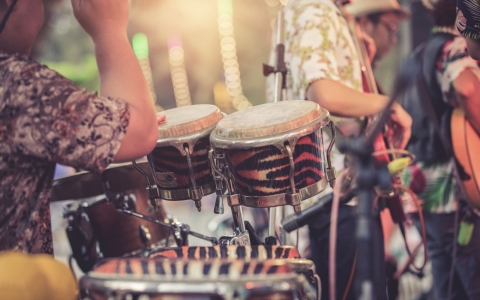New research investigating cultural appropriation through language

New research from The Open University’s School of Languages and Applied Linguistics at the Faculty of Wellbeing, Education and Language Studies will seek to understand and improve race relations by observing the use of Jamaican Patois.
Jamaican Patois (also known as Patwa), a creole language from the Caribbean with influences from Europe, Africa and Asia, has gained significant cultural influence across the world. Using the phrase, “Global Patwa”, Dr Jaspal Singh will investigate the use of Jamaican Patois by non-Jamaicans and dissect the relationship between language, race, and cultural appropriation.
Dr Jaspal Singh, Lecturer in Applied Linguistics and English Language at the Open University, said:
“I want to find out how the use of language constructs our understandings of race and how our ideas about race enables and limits the way we can use language.
After the murder of George Floyd in 2020, a new consciousness about blackness and historical injustices and systemic racism emerged in western and northern countries; and discussions about cultural appropriation have become more widespread.
I will look at the use of Jamaican language features in the performances of reggae and dancehall artists who do not have a Black Caribbean background, and the changes in attitude towards such linguistic borrowing.”
Funded by the British Academy, Jaspal’s research falls under the field of raciolinguistics, an emerging area of research examining the role of language in constructions of race, as well as the role of race in constructing ideas of the appropriate use of languages.
The research aims to scrutinize the use of Patois by artists from the United Kingdom, Germany and India. Each of these countries provide different outlooks influenced by the absence or inclusion of colonial guilt and/or whether the population has a significant Black Caribbean presence.
Dr Singh added:
“By comparing these three national contexts, the research will provide insights into the ways in which the use of Patois is negotiated between artists and audiences and within media circles.
While in the UK there seems to be a heightened awareness about using Jamaican Patois when you are not from the Caribbean, in Germany and India reggae and dancehall artists appear to freely use Jamaican language features in their performances seemingly without much policing from the audience or from the wider public.
In my research I will look closely at these types of relationships and investigate how colonial histories between Jamaica and India, can lead to a legitimisation of using Patois in India.”
The findings of this research seek to enhance the understanding of the co-construction of language and race, offering a fresh perspective from three distinct national contexts. This will, in turn, enrich our understanding of the global dynamics of language and race and how they function in contemporary society.
Are you already an OU student?
Request your prospectus
Explore our qualifications and courses by requesting one of our prospectuses today.
Request prospectus